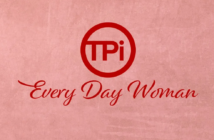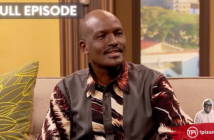When Relating Hurts!
We all love marriage when the love abounds. We all love the feeling of being connected to someone special.
Of course I had heard that saying a thousand times before. We’ve all experienced the same. When it’s good, we love being in love. When it’s bad, we are tempted to run for the hills.
I watched with concern as Sara and Josh, who had flown to The Marriage Recovery Center from the East Coast, desperate for a miracle, engaged in what I’ve seen so many times before–hurtful relating. Perhaps you’ve been there as well–relating in a hurtful way and looking for an exit.
Hurting people hurt people. One person relates in a hurtful way–attacking, accusing, shifting the blame or stonewalling. Any one of these painful ways of relating causes unlimited distress for both parties. Hurtful relating begets more hurtful relating from the other and soon neither feels motivated to help the other.
“It seems like it’s ‘each person for themselves,’” Josh said. “I don’t think I have her back and I sure don’t feel like she’s got mine.”
Hurtful relating is nothing new. People have been hurting each other throughout the ages. In fact, it takes extra effort to pull out of these spins and beginning healthy, helpful relating. It can, however, be done.
Let’s look more closely at the components of hurtful relating and what can be done about it:
- Hurtful relating is where each person pushes, maneuvering, even manipulating to be heard, though in the process they talk over their mate;
- Hurtful Relating is where each person speaks from their Protective Self, accusing, attacking and even disrespecting their mate;
- Hurtful Relating is where each person loses sight of the common goal–with no collaboration to effectively solve problems;
- Hurtful Relating is where each person shows little restraint in talking respectfully to their mate;
- Hurtful Relating is where each person fails to manage their emotions, in the process overwhelming their mate and failing to truly listen to or appreciate what their mate is saying.
Hurtful Relating is very destructive. Nothing good comes from this style of relating, and without definitive intervention, it can be the undoing of the strongest couple.
What can be done to end this very destructive pattern of interacting? Consider these steps:
First, take a clear inventory of your relationship.
Step back from your relationship and admit your ‘default’ pattern of speaking to your mate when under stress. You cannot change something you don’t admit. Denial will kill your relationship.
Second, take an inventory, possibly with a professional, of the hurtful ways of relating in your marriage.
It often takes someone outside our relationship to see what we are doing. We often become so embroiled in a pattern that we don’t quickly see it.
Third, take active steps to remedy the problems.
Once you’ve identified hurtful patterns, set out a plan to remedy these patterns. We must replace destructive patterns with helpful patterns and then become proficient with these new, healthy ways of relating.
Finally, make an agreement with your mate to stay the course.
You’ve done a lot of hard work in identifying hurtful patterns of relating. Now commit to staying the course in correcting those patterns and replacing them with healthy ways of communicating and solving problems. Cultivate a method by which you will be held accountable for change, first with each other and secondarily with a professional or group of friends.
Do you ever find yourself caught in the endless trap of Hurtful Relating? Consider that scripture implores us to “Let your speech always be with grace, as though seasoned with salt, so that you will know how you should respond to each person.” (Colossians 4:6, NASB) Seasoned speech never engages in Hurtful Relating!
I’d like to hear from you. Have you struggled to receive constructive criticism? Would you like to be more emotionally available to hearing concerns? Please explore more about my work and specifically my Marriage Intensives at www.MarriageRecoveryCenter.com. Send comments and questions to me at drdavid@marriagerecoverycenter.com.

